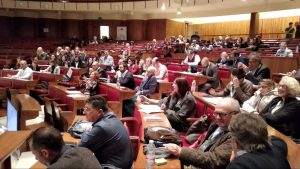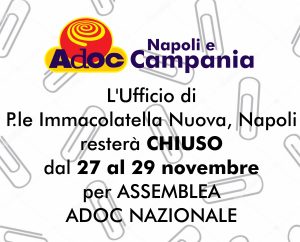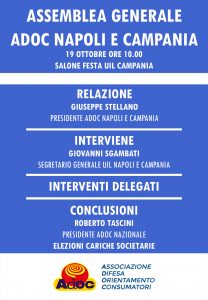The National Council of Notaries and 14 Consumer Associations ( Adiconsum, Adoc, Adusbef, Altroconsumo, Assoutenti, Casa del Consumatore, Cittadinanzattiva, Confconsumatori, Federconsumatori, Lega Consumatori, Movimento Consumatori, Movimento Difesa del Cittadino, Union for the Defense of Consumers, Union Nazionale Consumatori ) last July, presented in Rome, as part of the information campaign Casa Bene Primario , a handbook dedicated to the “ Life Mortgage Loan ”.
The information sheet was created with the aim of guiding citizens towards an informed choice of the opportunities and risks offered by this financial instrument reserved for the over 60s, in force since March 2016, and represents a preview of the 15th dedicated Citizen Guide to patrimonial instruments for the protection of the third age.
Here is in brief what it is:
What is the Mortgage Life Loan (PVI)?
It is a loan granted by banks or financial intermediaries (the “lender”), to people over the age of 60 (“financed person”), guaranteed by a first-degree mortgage registered on a residential property to guarantee the repayment of the loan , interest and expenses.
If the person requesting the loan has been married, constituting the civil union or cohabiting more uxorio for at least 5 years and the property to be mortgaged as guarantee of the PVI constitutes the residence of both spouses, the constituents of the civil union or the cohabitants , the related loan agreement must be signed by both, even if the property is owned by only one, provided that the other partner is also 60 years of age.
Can the duration of the PVI be established in advance?
No, because it depends on the life span of the financed subject; if the loan is jointly owned by the spouse, the constituent of the civil union or the cohabitant, reference is made to the duration of the life of the longest-living one.
When can the lender request full repayment in a single solution of the loan?
It can do so on the death of the financed subject or if the property or other rights in rem or enjoyment (eg right of usufruct or residence) on the property given as guarantee are transferred, in whole or in part, or deeds are carried out which significantly reduce the value, including the establishment of real security rights in favor of third parties that affect the property.
How does the full refund of the PVI take place?
There are two refund options:
- without capitalization : the financed subject gradually repays the interest and expenses before the occurrence of the events indicated above; therefore, at the time of repayment, only the principal must be repaid;
- with capitalisation : upon maturity of the loan, both the capital and the interest and expenses capitalized annually must be repaid in a single solution. The loan must be repaid in full within twelve months of the occurrence of the events indicated above. In the event of the death of the financed subject, if the loan is jointly held, the repayment will take place at the time of the death of the longest-lived.
What happens when the borrower dies?
Within 12 months of the death of the financed subject, his heirs must repay the loan in full or, in agreement with the lender, arrange for the sale of the house on their own.
After this period, only the lender has the right to sell the house, without having to resort to an ordinary judicial enforcement procedure, at the price determined by an independent expert appointed by the lender, satisfying his credit and giving any excess to the heirs.
If the sale is not completed within another 12 months, the price will decrease by 15% each year, until the house is sold. If the proceeds of the sale, net of the expenses incurred, do not cover the lender’s credit, this can not ask the heirs.
Can the delayed repayment of interest and expenses cause termination of the PVI contract?
Yes, if the repayment without capitalization has been chosen, the lender may request the termination of the contract in the event of delayed payment of the repayment, installation of interest and expenses if this delay has occurred at least 7 times, even if not consecutive.
Where is the mortgage registered?
The mortgage is registered in the public real estate registers with a deed received or authenticated by the notary.
The pre-contractual documentation.
Due to the characteristics of the PVI it is very important to weigh the choice and compare the various conditions offered, asking the potential lender for the pre-contractual documents which must clearly indicate the principal, expenses and interest to be paid over the years. The amount of the loan granted must also be carefully evaluated: it depends on the appraisal value of the house but also on the age of the subjects requesting it and can vary from institution to institution.
Source: http://www.adocnazionale.it/prestito-ipotecario-vitalizio-cose-e-come-funziona/



 Si è svolto a Roma dal 27 al 29 novembre l’evento “Consumaker – il futuro è nelle mani dei consumatori”, organizzato dall’Adoc Nazionale in occasione dell’8ª Assemblea Nazionale dell’Associazione.
Si è svolto a Roma dal 27 al 29 novembre l’evento “Consumaker – il futuro è nelle mani dei consumatori”, organizzato dall’Adoc Nazionale in occasione dell’8ª Assemblea Nazionale dell’Associazione. “L’evento “Consumaker – il futuro è nelle mani dei consumatori” – riporta l’ADOC Nazionale – “ha avuto un notevole successo, di pubblico e mediatico, e rappresenta il primo tassello di un percorso, quello dell’Adoc, che sarà sempre più imperniato sull’educazione, sull’informazione e sulle competenze. Il ruolo dei consumatori sarà sempre più strategico per le sorti della società e dell’economia, al fine di contribuire a creare una società più equa, più responsabile, più sostenibile”.
“L’evento “Consumaker – il futuro è nelle mani dei consumatori” – riporta l’ADOC Nazionale – “ha avuto un notevole successo, di pubblico e mediatico, e rappresenta il primo tassello di un percorso, quello dell’Adoc, che sarà sempre più imperniato sull’educazione, sull’informazione e sulle competenze. Il ruolo dei consumatori sarà sempre più strategico per le sorti della società e dell’economia, al fine di contribuire a creare una società più equa, più responsabile, più sostenibile”.


























